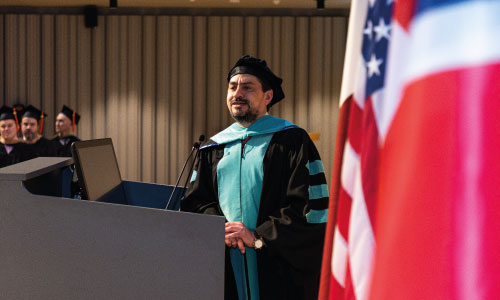Claudio Rivera: Our perspective frequently limits young people
 It is quite motivating to watch how children learn. Children do not have filters, especially when they are learning through games and practical activity. They are not afraid to make mistakes and acknowledge that while they are playing and practicing. In a specific sense, the playground is a ground for experiments where children find three elements significant to every learning experience: there are specific rules and limitations, constant feedback and, what is even more important, children are there for the sake of the play itself. Their only goal is to play.
It is quite motivating to watch how children learn. Children do not have filters, especially when they are learning through games and practical activity. They are not afraid to make mistakes and acknowledge that while they are playing and practicing. In a specific sense, the playground is a ground for experiments where children find three elements significant to every learning experience: there are specific rules and limitations, constant feedback and, what is even more important, children are there for the sake of the play itself. Their only goal is to play.
Games offer a privileged training system. Imagine how productive every teaching activity would be if pupils observed its rules, received constant feedback, and did it only for the sake of learning.
Schools and universities sometimes miss out on the opportunity to use more elements of play to teach. One of the reasons is that we are very focused on attaining specific study goals and standards, so we end up trying to make studying a linear process. We make our brain operate like a Lego: one piece of knowledge after the other. In truth, the learning process of every human-being is much more complicated: emotions, social interaction and other factors take part in the learning process.
Learning as a process of games is useful when solving problems. You give the students a problem without a visible solution and ask them to understand details of this problem, find alternatives to the solution, select one of them and defend their choice. By doing so, they have to maintain the theory for finding the logical solution.
During recent years, being in charge of the Riga Business School Bachelor program, we have introduced our students to problems related to real cases in the private and state sector. This year we have decided to present our students with yet another challenge – what if they could solve some global problem? Even more – what if they could solve a global problem that no one has solved before?
We have this possibility. The organization esi.lv, with the support of the Foreign Ministry of the Republic of Latvia, was searching for academic partners to implement a project in Africa – Namibia and Zambia. Currently, in partnership with esi.lv we have started the education and business development project “Female Empowerment through Entrepreneurship in Africa” as part of the cooperation grant of the Ministry of Foreign Affairs of the Republic of Latvia for 2022/2023.
Throughout the semester, students of Riga Business School and around 60 students from Namibia and Zambia will create business ideas to solve real problems in these Sub saharan African countries. The main aim is to empower these young women and help them to increase the self-assurance that they are capable of doing important things for the benefit of their country, continent and the world.
The project will help students master intercultural skills, and participate in business promotion. It will help them to better understand business in Africa as, in the frame of the project, students will have to explain it to the audience that might not have the same preliminary knowledge as our students.
Besides,working with people from completely different cultures can promote their understanding of the world, enrich their perspective and give them an insight into humanity and business which would not occur if they always work only with people similar to themselves.
Therefore, we agreed to join the African initiative promoted by the community esi.lv. With the team of Riga Business School we will help to share knowledge in the promotion of businesses and at the same time create an environment for mutual cooperation between women and our students involved in the project to develop business ideas. Our students with their ideas, enthusiasm and intellectual potential will help to develop business ideas with women from Namibia and Zambia who have applied for this project to foster their business skills. After all, Africa is a continent of great opportunities!
This project will allow our Bachelor level students to operate in problem-solving mode and engage in a massive adventure. Our motivation increases by encountering problems no one has solved before. And helping to empower young women from Africa is definitely a priority and long-term task for the entire world. It gives strength to study.
We are frequently limiting young people with our perspective – in reality our perspectives usually are our limitations. Operating in Riga Business School, we wish for our students to surpass our limitations. It means dreaming and experimenting in places where we have not dared.
Riga Business School Deputy Director, Bachelor Programs Director Claudio Rivera